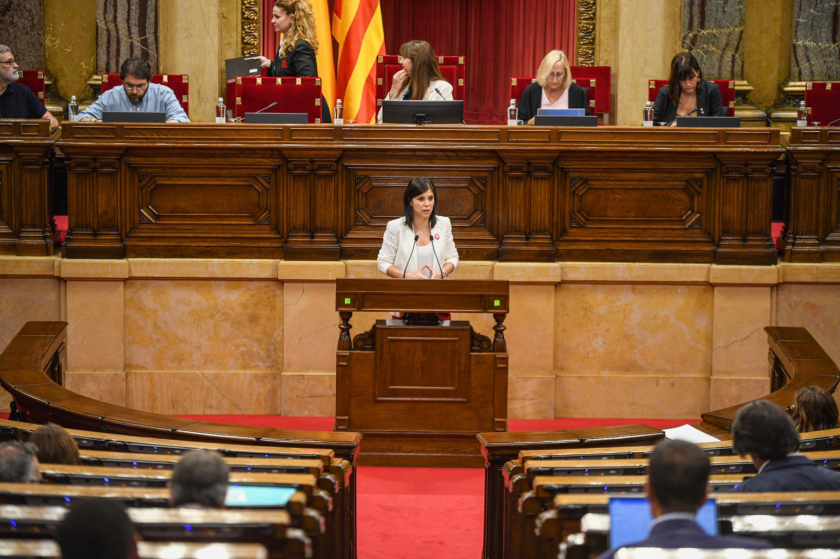
Esquerra motions for articulation of an anti-repression strategy as unitary and broadly accepted as possible
The Esquerra Republicana parliamentary group has introduced a motion before the Parliament of Catalonia denouncing the impact of repression on both the pro-independence movement and the democratic quality of the Spanish state. In this regard, one of the points that will be voted on in session next week includes the “need to move forward in the passage of an Amnesty bill” promoted by the Catalan Chamber to end the judicialization, especially as detailed in the Cilevics report’s resolution 2381 adopted last year by the Parliamentary Assembly of the Council of Europe.
Esquerra’s motion recovers, among other things, the spirit of resolution 102 approved during the general policy debate in Parliament, by which Catalan parliamentary groups committed to advance an amnesty bill to present before the Spanish Congress. Indeed, this proposal via Parliament means to bring the debate on ceasing repression back to Madrid, and this time with a broad parliamentary mandate.
The motion, which responds to the interpellation between the Minister for the Presidency Laura Vilagrà and Esquerra parliamentary spokeswoman Marta Vilalta, will be debated in the next plenary session and sets out several courses in terms of anti-repression strategy. For example, Esquerra demands articulation of an anti-repression strategy as unitary and broadly accepted as possible to preserve the fundamental rights of pro-independence activists and the general public.
We know that amnesty and self-determination are the best solutionMarta Vilalta Esquerra parliamentary spokeswoman
“We know that amnesty and self-determination are the best solution. We also need collective conscience of anti-repression solidarity to denounce the facts that cannot be ignored. We need to minimize their effects and prevent division, which only weakens us, leading to the very abandonment repression seeks,” said Ms Vilalta.
In this regard, the text protests once again that there are many open cases against pro-independence actors and recalls that repression as a political tool against independence has alerted institutions such as Amnesty International, Human Rights Watch, the Council of Europe and the ECJ, among others.
That is why Esquerra will bring the definitive quashing of repression against independence to the vote in Parliament, and that is why Esquerra urges both Catalonia’s Generalitat government and the Spanish government to “contribute to de-judicialization, to commit to the fundamental rights of those identified with alternative projects and to reject the persecution or criminalization of the various policy options.”
Thus, concluding in the sixth point, Esquerra’s MPs commit to making dialogue, negotiation and the search for agreement the avenue to seek mechanisms to channel the existing broad consensuses, for example on halting repression, in favour of the Republic, and democratic resolution of the political conflict, through the ability to decide the future of Catalonia, with the greatest possible legal certainty.



